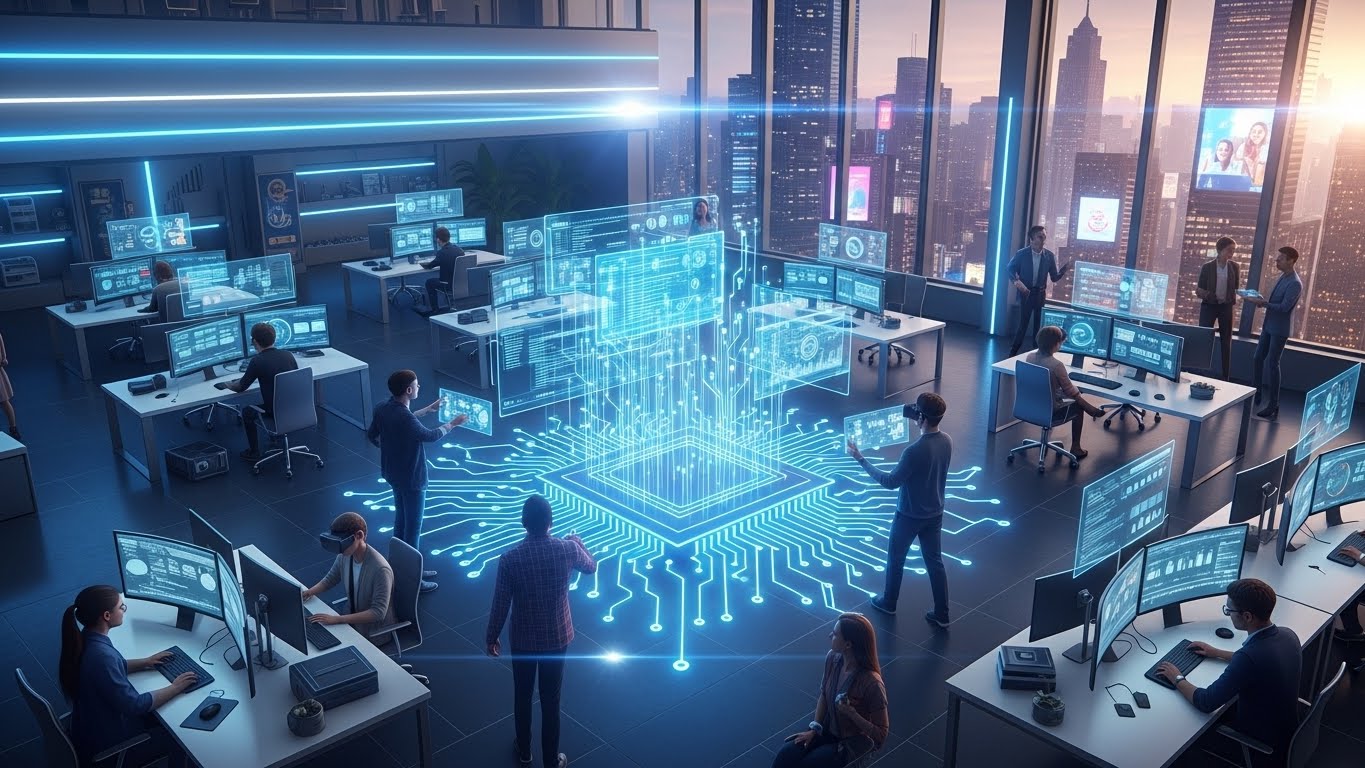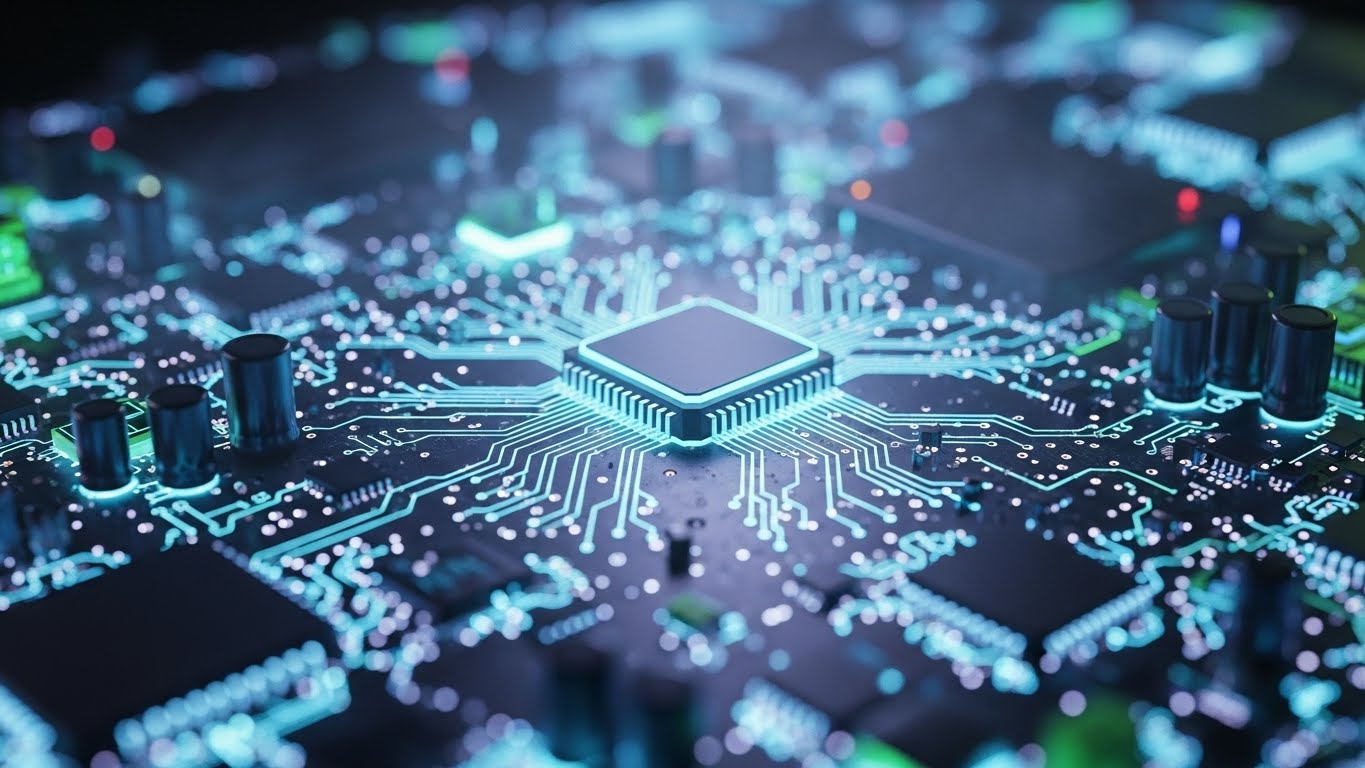Technology is progressing at a breakneck pace, reshaping industries and daily life in ways we never imagined a decade ago. As we venture further into the 21st century, the tech landscape is evolving to introduce groundbreaking innovations that promise to revolutionize the way we interact with the world. From artificial intelligence to next-gen computing, the future holds immense potential. Here, we dive into some of the most exciting and transformative tech developments that are set to define the next decade.
Artificial Intelligence: A Leap Toward Autonomous Systems
Artificial intelligence (AI) has already made a significant impact across industries, but we’re only scratching the surface of its potential. In the coming years, AI will evolve to become even more integrated into our daily lives, enabling a range of possibilities from fully autonomous cars to personalized healthcare solutions.
- Smarter Automation: AI is expected to take automation to new heights, not just in manufacturing but across industries like retail, logistics, and even the creative sectors. From self-managing supply chains to AI-powered content creation, the capabilities of AI will streamline operations and enhance productivity in ways previously thought impossible.
- AI-Driven Healthcare: Personalized medicine is on the horizon, thanks to AI’s ability to analyze vast datasets and tailor treatment plans. AI algorithms can already assist doctors in diagnosing diseases with remarkable accuracy, but soon they may be capable of predicting health issues before they arise, leading to preventative care on a mass scale.
- Ethical AI: As AI becomes more prevalent, the conversation around its ethical implications will intensify. Ensuring fairness, transparency, and accountability in AI systems will be crucial in mitigating biases and safeguarding privacy. In the next decade, AI regulation and governance will become central topics of global discussion.
Quantum Computing: Unlocking Unprecedented Power
Quantum computing, though still in its infancy, has the potential to redefine what we know about processing power. Unlike classical computers that use bits, quantum computers rely on qubits, which can exist in multiple states at once, drastically increasing computing power.
- Solving the Impossible: Problems that are currently insurmountable for even the most powerful classical computers, like simulating complex molecules or optimizing intricate logistics networks, could become solvable with quantum computing. This breakthrough has the potential to revolutionize industries such as pharmaceuticals, materials science, and artificial intelligence itself.
- The Race to Quantum Supremacy: Major companies, including IBM, Google, and various startups, are racing to achieve practical quantum computing. While large-scale, fault-tolerant quantum computers are still years away, progress is being made, and we can expect significant milestones over the next decade that will bring quantum computing closer to real-world application.
The Internet of Things (IoT): A Seamless, Connected Future
The Internet of Things (IoT) is one of the most exciting innovations to come out of the tech world in recent years, and its potential is only beginning to unfold. IoT refers to the network of everyday devices, from refrigerators to smartwatches, that are interconnected through the internet.
- Smart Cities and Infrastructure: In the next decade, IoT will revolutionize urban living by creating smarter, more efficient cities. From traffic management to energy consumption, IoT will enable cities to monitor and optimize infrastructure in real-time, reducing waste and improving overall quality of life. For instance, smart traffic lights that adjust to real-time traffic flow will cut down on congestion, while smart energy grids will ensure more efficient power use.
- Healthcare at Your Fingertips: IoT will also have a profound impact on healthcare. With wearables and connected devices, patients can track vital signs, medication schedules, and even receive remote monitoring from healthcare professionals. This constant stream of real-time data will lead to more proactive and personalized care, ultimately improving health outcomes and reducing hospital visits.
- Smarter Homes: Home automation is already growing, with smart thermostats, lights, and security systems becoming increasingly common. In the next decade, expect homes to become more responsive, anticipating your needs before you even express them. From adjusting temperatures based on your daily schedule to cleaning your home with robotic assistants, IoT will make life more convenient and efficient.
The Metaverse: A Virtual Future for Work, Play, and Socializing
The concept of the metaverse, a shared virtual space that blends physical and digital realities, has captured the imaginations of many. While it’s still in its early stages, the metaverse could soon become a significant part of our digital lives, changing the way we interact, work, and play.
- Virtual Workspaces: The rise of remote work has already reshaped how we think about the office. The metaverse takes this a step further by offering immersive, virtual environments where colleagues can collaborate in real-time, using avatars and virtual tools. As VR and AR technologies continue to improve, the metaverse could replace traditional video conferencing and create more engaging and dynamic workspaces.
- New Forms of Entertainment: Gaming, concerts, social events, and other entertainment experiences are already making their way into the metaverse. With platforms like Decentraland and Roblox gaining popularity, we can expect entertainment to become increasingly interactive, with users participating in live, virtual events or even creating their own. The metaverse will provide endless opportunities for creativity, allowing individuals to craft unique virtual experiences.
- Virtual Economies: The metaverse could lead to entirely new economic systems, where virtual goods and services hold real-world value. The rise of NFTs (non-fungible tokens) and blockchain technology will likely play a significant role in enabling virtual ownership and trade, making the metaverse a viable economic ecosystem.
5G and Beyond: The Backbone of Future Tech
5G technology promises to unlock unprecedented speeds and connectivity, paving the way for more advanced tech innovations. With its lower latency and faster download speeds, 5G will become the backbone for many of the technologies we are just beginning to explore.
- Smart Cities and IoT Connectivity: 5G will be a critical enabler for the widespread adoption of IoT devices. Its speed and reliability will allow for more connected smart cities, where sensors, cameras, and other devices communicate in real-time to manage everything from traffic to waste management. As a result, cities will become more sustainable, efficient, and safer.
- Autonomous Vehicles: 5G will be crucial for the development of autonomous vehicles, allowing them to communicate instantly with each other and with traffic infrastructure. This will improve safety, optimize traffic flow, and make self-driving cars a reality in the next decade.
- Remote Healthcare and Virtual Reality: With 5G’s low latency, telemedicine will reach new heights, enabling real-time remote consultations, surgery, and monitoring. Virtual reality (VR) applications in healthcare will also become more viable, as 5G allows for smooth, immersive experiences.
Blockchain and Decentralization: A Revolution in Trust
Blockchain technology, which underpins cryptocurrencies like Bitcoin and Ethereum, is evolving to have applications far beyond just digital currencies. It’s paving the way for decentralized systems that could redefine industries such as finance, supply chains, and even governance.
- Decentralized Finance (DeFi): Blockchain is the backbone of decentralized finance, or DeFi, which allows people to conduct financial transactions without relying on traditional banks. With blockchain’s transparency and security, DeFi platforms are changing how we think about everything from loans to insurance.
- Supply Chain Transparency: Blockchain’s ability to track transactions securely and transparently can help improve supply chains, making them more efficient and reducing fraud. Companies can trace the journey of products from raw materials to the final consumer, ensuring quality, safety, and ethical sourcing.
- Digital Identity and Voting: Blockchain could also revolutionize how we manage identity and voting. By creating secure, tamper-proof digital identities, blockchain could provide a solution to identity theft and fraud. In the future, it could even be used for secure and transparent voting systems, ensuring fair elections worldwide.
Conclusion: Embracing the Future of Tech
The next decade promises to be a thrilling period for technological advancements. From artificial intelligence and quantum computing to the metaverse and blockchain, we are standing at the precipice of a new era that will radically transform our world. As these innovations unfold, they will not only change the way we live but also challenge us to rethink how we interact with technology, society, and each other. Embracing these technologies while addressing their ethical and societal implications will be key to ensuring a future that is both innovative and inclusive.




